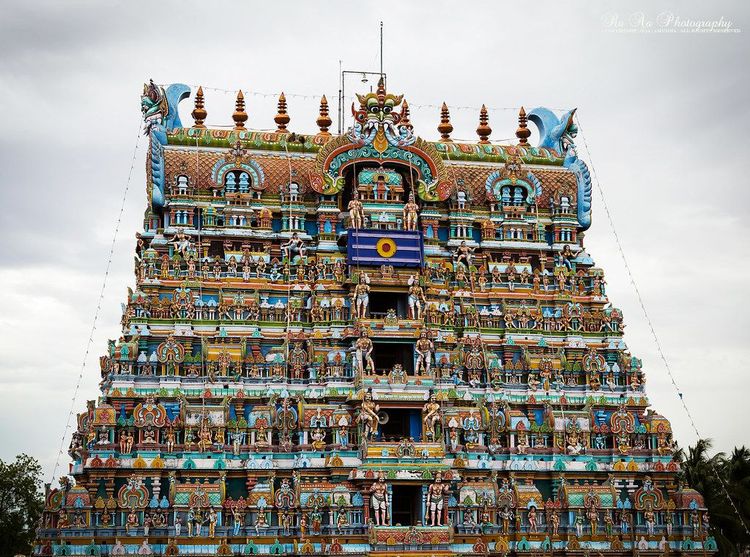For smooth Ad free experience
For smooth Ad free experience
On the northern banks of the Thamirabarani River in the Tirunelveli district of Tamil Nadu stands a temple dedicated to Lord Shiva. In the Nellaiappar Temple, the devotees worship Lord Shiva as Swami Nellaiappar or Venuvananathar and Goddess Parvathi as Kanthimathi Amman.

Story of Nellaiappar Temple
## Abode of the Suyambu Lingam
The Nellaiappar Temple houses the Suyambu Lingam — a shivalingam that is believed to have erupted from beneath the earth’s surface — as its main deity. Spread over fourteen and a half acres, the magnificence of this temple makes it one of the biggest temples in Tamil Nadu. It is counted among the top five most sacred Shiva temples where Lord Shiva is believed to have performed Nataraja Nritham, the cosmic dance of life. According to the Puranas, this temple was constructed around the 7th century AD.
## Etched with the memoirs of dynasties
According to the local tales, the initial temple complex was constructed by the Pandavas, while the Cholas, Pallavas, Cheras, and Madurai Nayaks further developed it by building the current masonry monument. Nindraseer Nedumaran (Koon Pandian), who ruled during the 7th century AD, constructed the awe-inspiring sanctum and gopurams of the temple.
## An amalgamation of two shrines
The modern Nellaiappar Temple is a dual temple, consisting of the Nellaiappar and Kanthimathi temples. Nellaiappar is dedicated to Lord Shiva while Kanthimathi is to his consort Parvathi. In 1647, Thiru Vandamalaiappa Pillaiyan, an ardent devotee of Lord Shiva, linked the two temples into a single unit through a magnificent terraced hall known as the Sangili Mandapam to curate a single temple. Sangili Mandapam features gigantic, intricate statues adorning the pillars.
Thiruvengadakrishna Mudaliar set up the western part of the Sangili Mandapam in 1756. This western end contains a floral garden that dates back approximately 250 years. A 100-pillared Vasantha Mandapam, a podium for a temple, is also located in the middle of the flower garden. In the inscriptions of Maravarman Sundara Pandyan, Lord Shiva has been called “Woodayar” and “Wodeyanayanar” and the goddess as “Nachiar”.
## Entailing the musical pillars
Similar to those at Tanjore and Rameswaram, Nandi Mandapam also has a fairly big statue of Nandi, the bull god. Mani Mandapam, placed near the Nandi Mandapam, has two majestic pillars carved out of a single stone and each one encompasses 48 sub-pillars. These pillars are often known as musical pillars due to their ability to produce musical notes when struck.
The Nellaiapar temple is a treasure house with numerous inscriptions, dating back to 950 AD. Near the sanctum sanctorum is a shrine dedicated to Nellai Govindan (Vishnu); legend has it that Lord Vishnu came to witness the divine wedding of Lord Nellaiappar and Goddess Kanthimathi. The wedding was believed to be performed in a thousand-pillared hall.
## Features that infuse wonder
Tamra Sabha, the copper dance hall at the Nellaiappar Temple, is another notable feature. It is a magnificent work of art with intricate woodwork. The Tamra Sabha lies within the temple’s inner grounds. During the Arudra Darisanam festival, Lord Nataraja (Shiva) and Goddess Sivakami are worshipped here.
## The centre of religious rituals
A temple to Sandana Sabhapati is situated directly behind the Tamra Sabha. The Sandana Sabhapati viewed from the Tamra Sabha is truly a sight to behold. The Periya Sabhapati shrine, another Nataraja shrine, is located also here. On certain occasions, religious rituals are held here, and this festival idol has a permanent residence in this shrine.
0
You might be interested in reading more from
